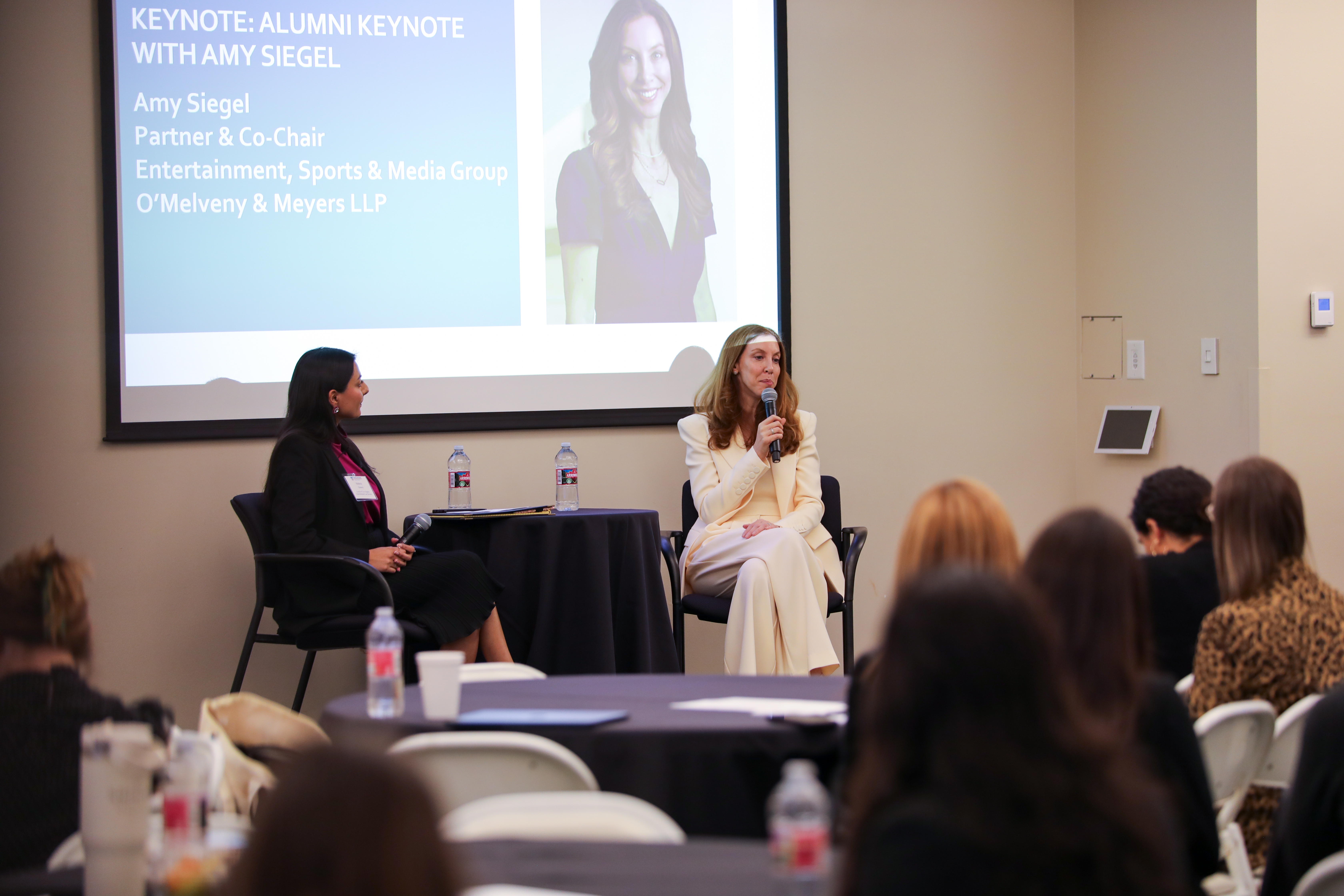
The Loyola of Los Angeles Law Review and Loyola of Los Angeles Entertainment Law Review convened prominent scholars and alumni across areas of law at LLS to participate in discussions on some of the most cutting-edge topics of today: AI and creativity.
Loyola of Los Angeles Law Review’s annual symposium on Feb. 16, titled “The Global Race Toward AI Regulation,” brought in nationally recognized speakers with a keynote by Professor Orly Lobel, University of San Diego. Lobel, the Warren Distinguished Professor of Law and director of the Center for Employment and Labor Policy, was named one of the most cited legal scholars in law and technology and in employment law and overall one of the most cited younger legal scholars in the United States. Lobel served on President Obama’s policy team on innovation and labor market competition, advised the Federal Trade Commission (FTC), the American Conference of the United States (ACUS) and the Government Accountability Office (GAO) and other federal and state agencies on tech policy, and she consults with private tech leaders on competition, human capital, equality, innovation, labor markets, and tech policy. Her recent book The Equality Machine: Harnessing Tomorrow’s Technologies for a Brighter, More Inclusive Future (PublicAffairs) was named by The Economist Best Book of 2022.
Speakers generating a lively debate also included Jordan Barry, John B. Milliken Professor of Law and Taxation USC Gould School of Law, Colleen Chien, Professor of Law, UC Berkeley School of Law, and Brenda Simon, ProFlowers Professor of Internet Studies California Western School of Law.
In her talk, Professor Lobel revealed what she called the “AI regulatory pyramid”: the emerging toolbox in the global race for the regulation and governance of artificial intelligence. Weighing societal benefits of AI and costs of regulation, Lobel delivered a provocative call for a spectrum of nuanced and sectoral regulations involving AI—and beyond.
“The nature of technology is you can’t put the genie back in the bottle,” says Lobel.
One week later, The Entertainment Law Review’s symposium,“ Protecting and Advocating for Creativity,” presented leading practitioners in the entertainment field Lindsay Arrington and Mariah Comer, both from LaPolt Law, P.C., who spoke about building and protecting an artist’s brand, and Ashley Fogerty, Bravado International Group, and Kia Kamran, Kia Kamran, P.C., who advocated a delicate balance between maximizing a creator’s brand with profits vs. protection.
The symposium generated new ideas and debate while inspiring students to take their passions to the field with a keynote Q&A with alum Amy Siegel ’05, partner and co-head of O’Melveny and Myers LLC’s Entertainment, Sports and Media Industry Group.
Seigel said she looks to her children’s latest obsessions, like gaming, to help her stay informed about the latest technology and media trends, and she encouraged students to build their own unique paths through entertainment, a vital and ever-changing field.
“Be a sponge and learn as much as you can,” she said. “That early training [whether in entertainment specifically or not] is so critical.”
The LLS symposium will result in a written special edition of the journal slated for release in 2025.
For more on the symposia, see Entertainment Law Review Symposium and Loyola Law Review Symposium.